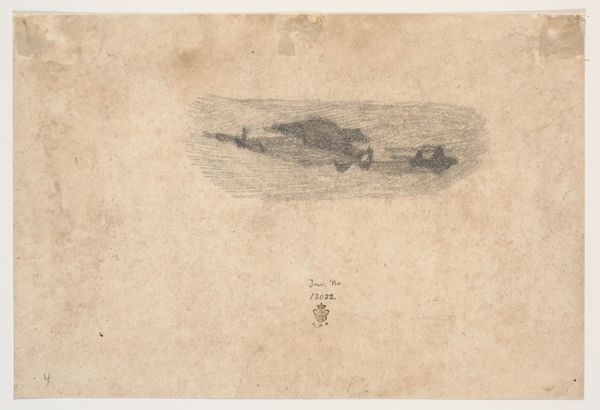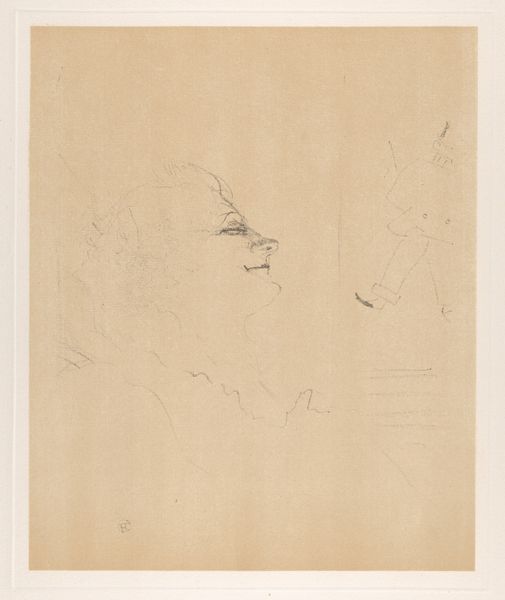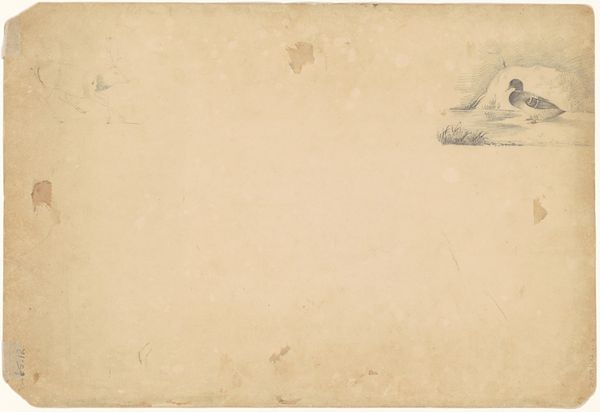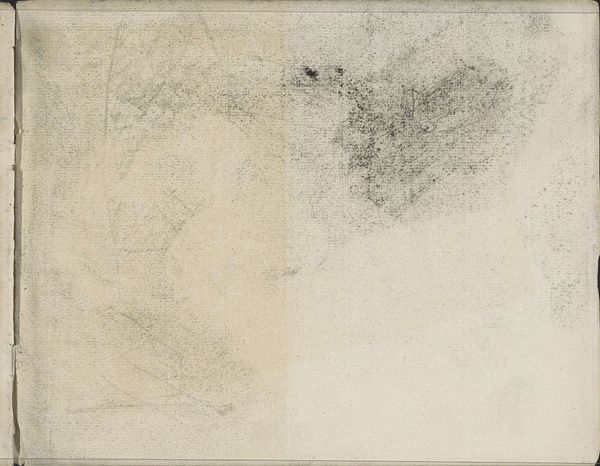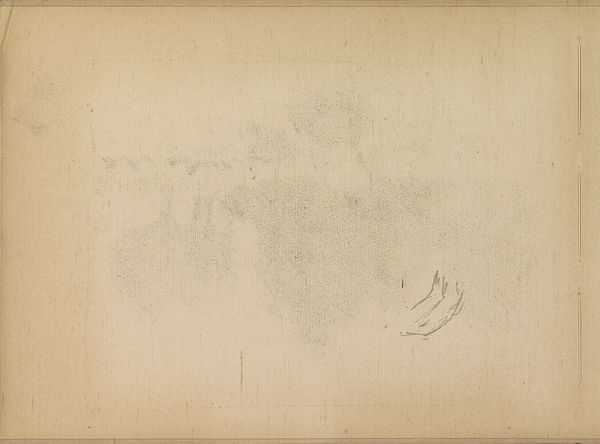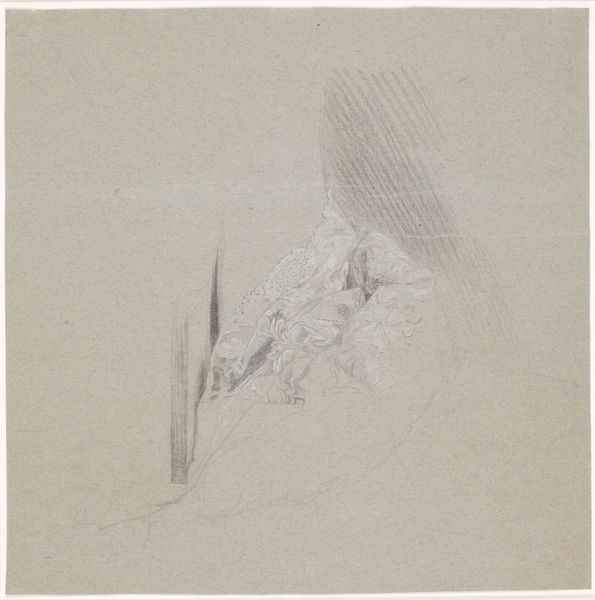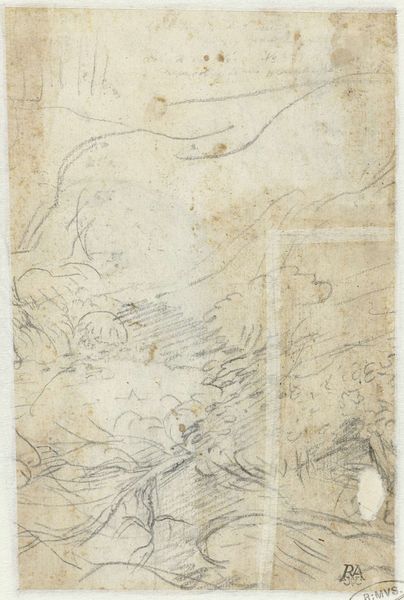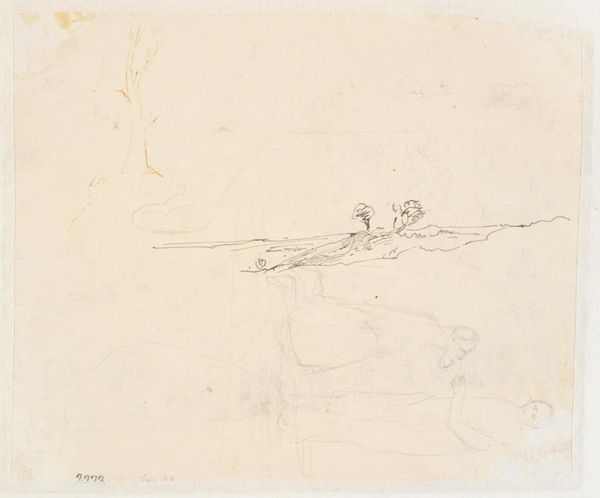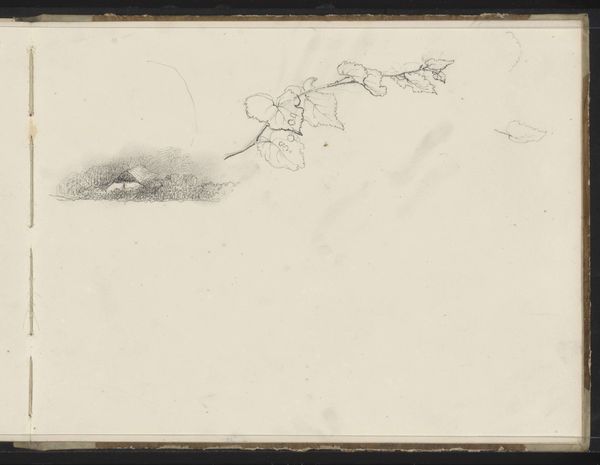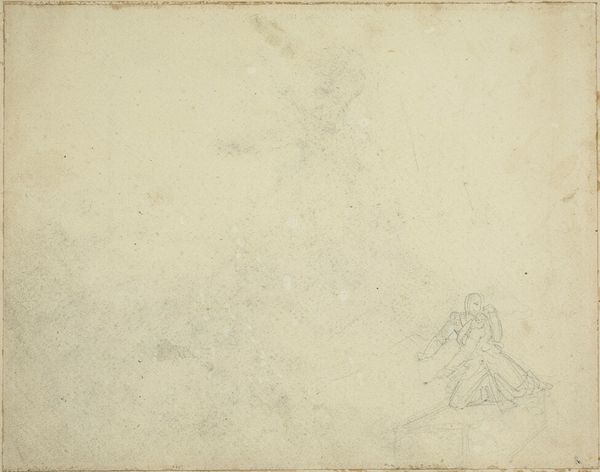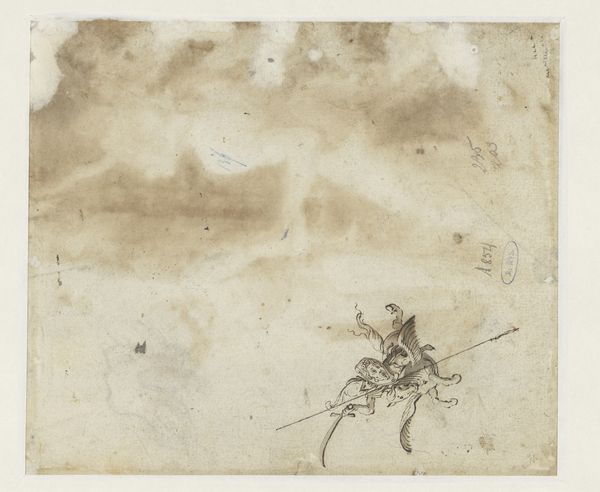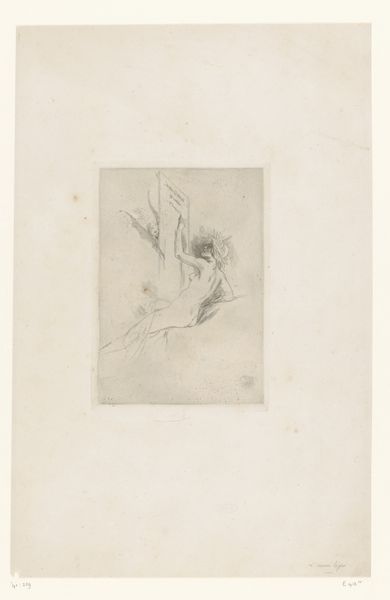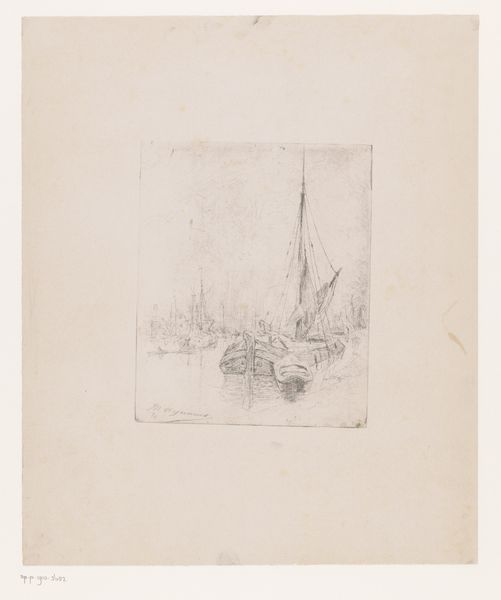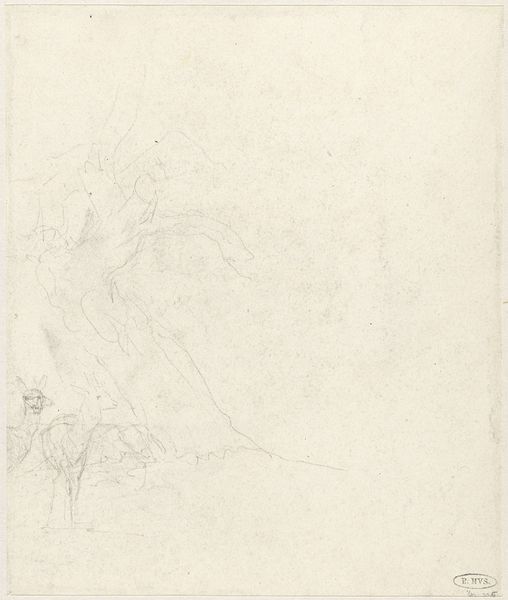
drawing, pencil
#
drawing
#
pencil sketch
#
landscape
#
romanticism
#
pencil
Dimensions: 265 mm (height) x 271 mm (width) (bladmaal)
Curator: John Constable's pencil drawing, “Rowboat Moored on the River Rother," made in 1834, depicts exactly what the title suggests. Editor: There's a distinct sense of melancholy evoked in the quiet, unassuming lines of the image, even in its unfinished state. Curator: In terms of its symbolism, the boat as a vessel has often been associated with journeys, but also departures, even death. But here, it's grounded, at rest, and still attached to life's currents, so perhaps it is a visual metaphor of someone between different worlds. Editor: It seems a stark reminder of how labor is tied to specific waterways. What communities depended on the Rother for livelihood in the 1830s? Thinking about social classes is also crucial when trying to understand the complete picture of a place's history. This boat becomes less a vessel, more a historical signifier of real lived lives tied to a natural landscape that remains absent in the composition. Curator: And to expand on that, visually, Constable's landscapes have deep roots in Dutch 17th-century painting, which valorized the mercantile activities and natural resources of the Netherlands. These references added up to form what could be called, more broadly, Romanticism. Constable emphasizes a return to nature and simplicity, where manual labor is integrated within the rural landscape, as if this promotes the purity of his identity, the truth of it. Editor: And who benefits from the romanticized depiction of this natural harmony? Whose labor is made invisible through the act of aestheticization? What sociopolitical hierarchies underpin such visualisations? I find myself pushing back against this view. Curator: I find myself rethinking what the real subject is. What does the rowboat ultimately represent beyond its mooring to history, the landscape, or even nature itself? I guess one returns again and again to how an artist reveals, yet also conceals. Editor: Yes, art encourages questioning of ourselves, others, and power structures to explore, in this instance, representations of nature.
Comments
No comments
Be the first to comment and join the conversation on the ultimate creative platform.
